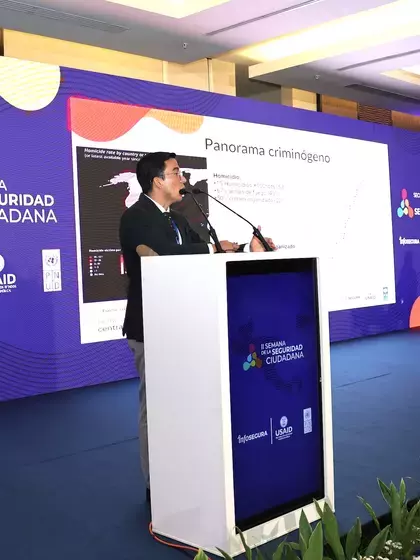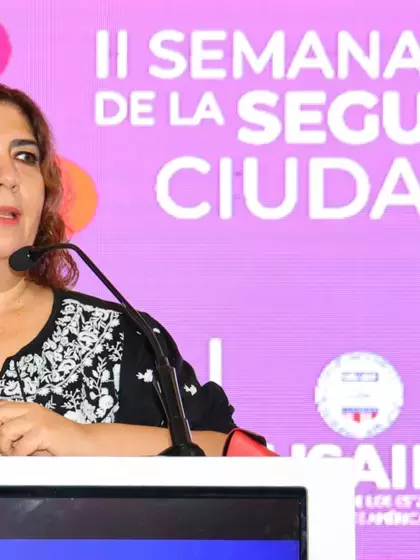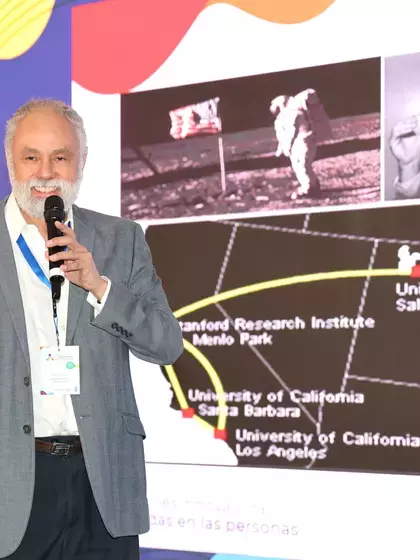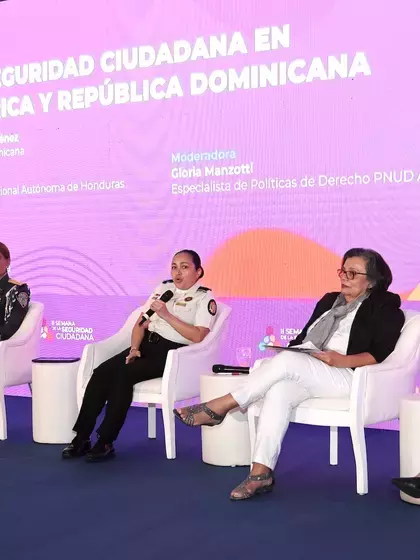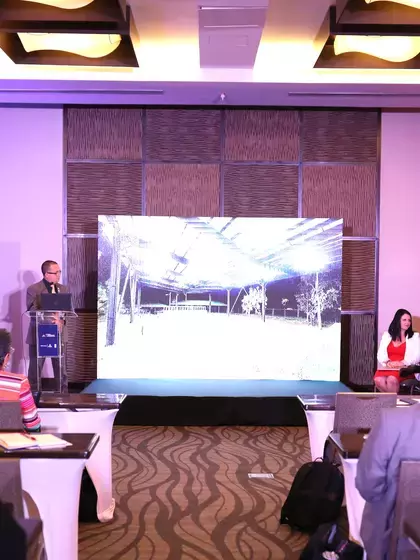
Collaboration and co-responsibility, essential to enhance citizen security.
The commencement of the Second Citizen Security Week hosted by InfoSegura, was marked by an opening session where key government authorities and senior law enforcement officials convened to establish the framework for the discussions on security issues. Two sessions on the first day focused on the topic of Managing Evidence-Based Public Policy for Citizen Security: Progress and Challenges.
The opening address was, “Stakeholder co-responsibility: citizen security enhancement strategy.” Moderated by InfoSegura Regional Coordinator Marcela Smutt, speakers highlighted the need for coordinating efforts and integrating resource allocation to maximize results and bring about meaningful transformations in citizen security. Key strategies along these lines are stakeholder co-responsibility and collaboration, with a focus on engagement, research, training and knowledge production.
The first panellist, Servio Tulio Castanos, President of the Institutional and Justice Foundation of the Dominican Republic (FINJUS), emphasized the importance of engaging civil society organizations in policymaking for citizen security. Characterizing the problem of insecurity, Mr Castanos noted that 70 per cent of homicides in the Dominican Republic arise from circumstances related to peaceful coexistence. “Improving the ways we collect and use information in the data ecosystems is a priority to promote people-centred justice and security,” he explained.
In his presentation, Mr Castanos drew attention to the successful collaboration between the foundation he leads and the Dominican government. This partnership focuses on the joint effort to compile and assess data, emphasizing the importance of a people-centred approach.
The second intervention was conducted by Karla Salazar, Coordinator of the Citizen Security Knowledge Network (CONOSE). Ms. Salazar shared the CONOSE agenda, which focuses on citizen security and violence prevention. She also listed the network's challenges and contributions in terms of technical training and specialization. The importance of collaboration between academia and decision-makers came across strongly. She also noted the need for sustainable financing mechanisms and upgrading the technological tools and methodologies for accessing and producing quality data in the region.


